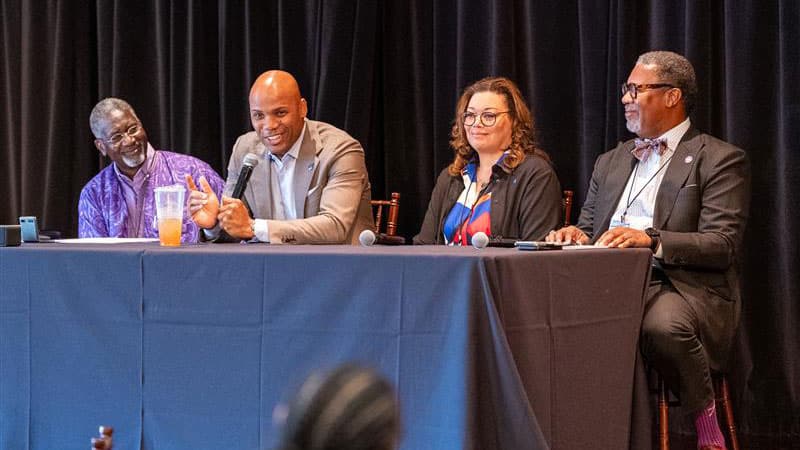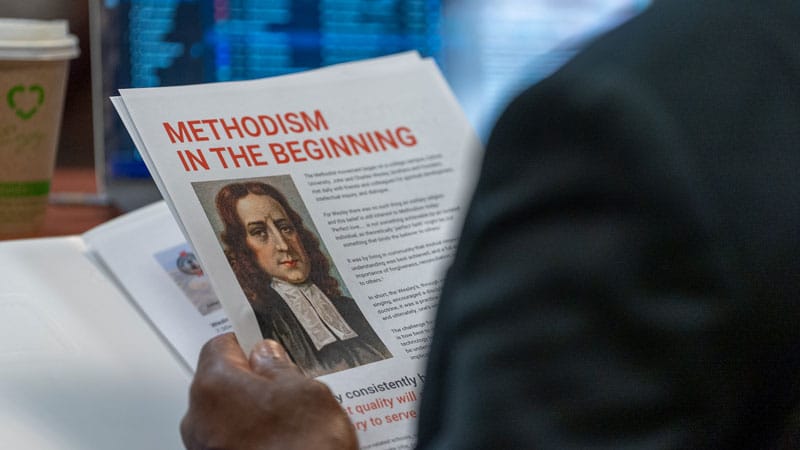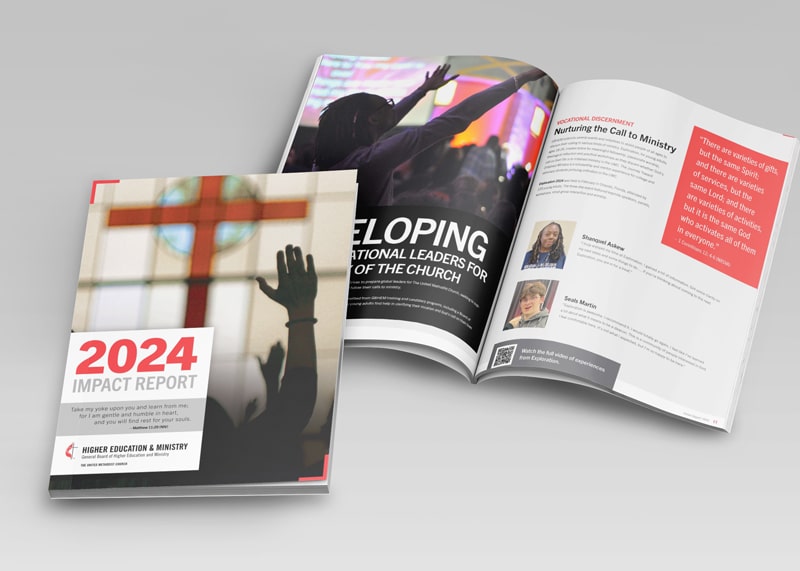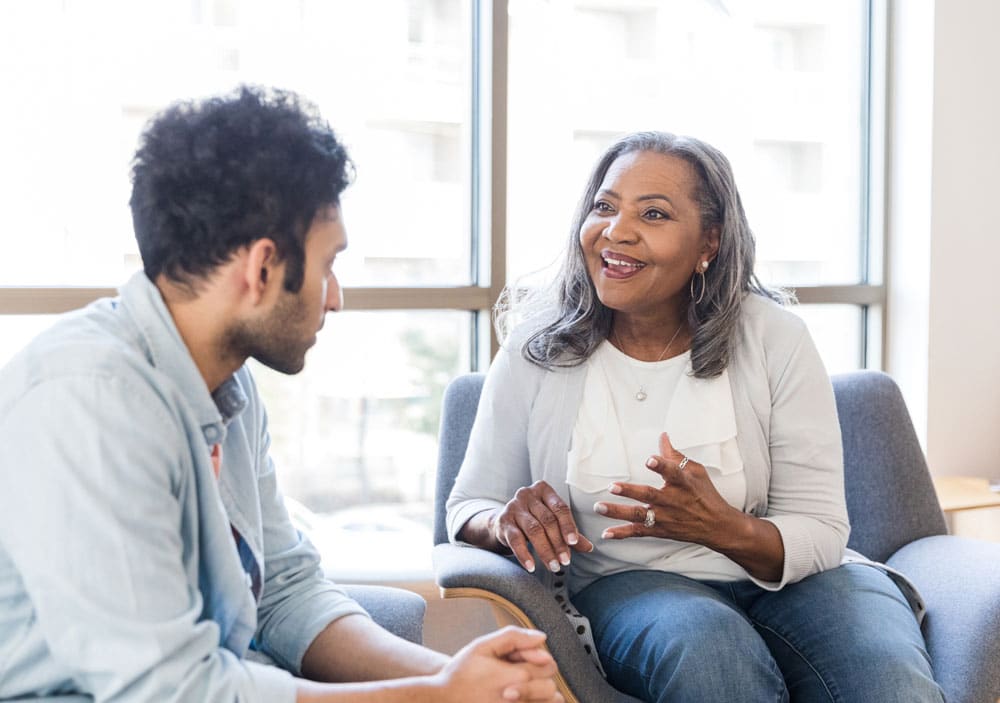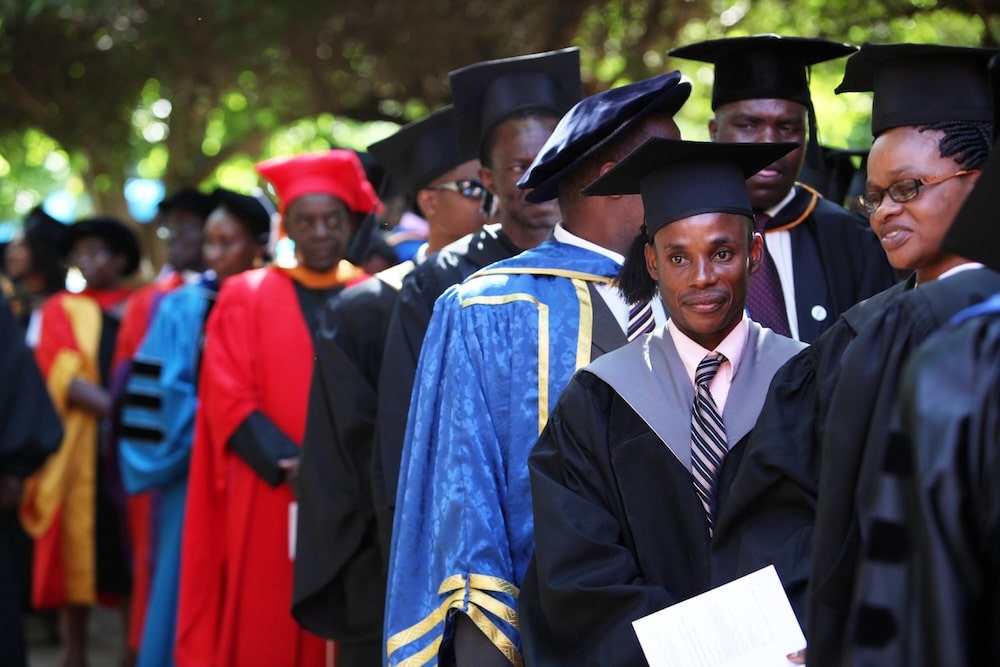Women of Color Scholars’ Series: Santiago Correa Erases Racial Lines in Afro-Latinx Theology
By Jessica Love
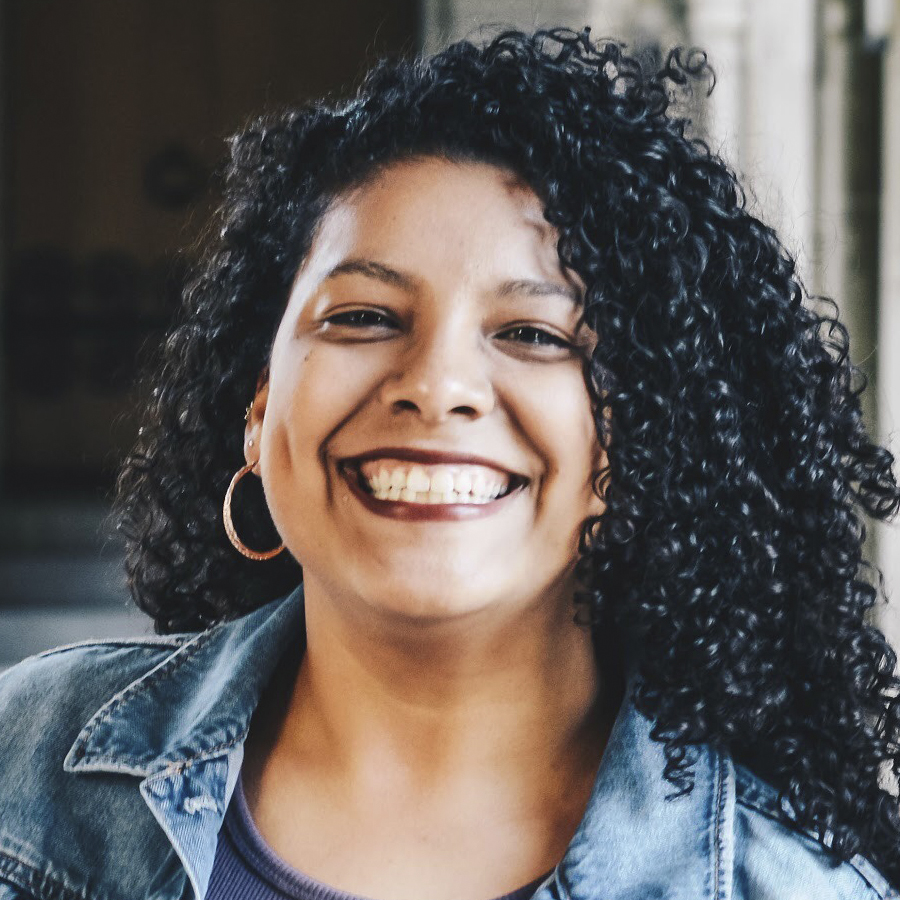
The daughter of two United Methodist ministers, Yolanda Santiago Correa was determined to take her career in a different direction. Yet, the prophetic call of ministry and the powerful connectivity of the United Methodist Church was too loud for the Puerto Rico native to ignore.
“I started getting all of these opportunities…While I was in college, they asked me to be the representative of the Puerto Rican Methodist Church in MARCHA, the Hispanic Latino Caucus,” she said. “I was already receiving funding from GBHEM for undergrad… but I started getting introduced to different initiatives and schools.”
One of those educational opportunities was a chance to attend Duke Divinity School in Durham, North Carolina.
“They asked me if I wanted to go to seminary, and I was sort of like, ‘No. I don’t want to do that. Both of my parents are pastors, I already know what that’s like,’” Santiago Correa said. “But there was definitely this calling I couldn’t stay calm about.”
Still hesitant, Santiago Correa applied to Duke Divinity School at the last possible date.
In that moment, Santiago Correa recalled thinking, “Well God, if this is where you want me to go, I’m going to have to get in, and we’re going to have to figure this out because I would be going to Duke at 21 by myself.”
Duke: New Dimensions of Race
The strong inclinations to ministry Santiago Correa shied away from as a teen all made sense during her time in seminary at Duke. The move from Puerto Rico to North Carolina in 2015 was a cultural shock, an experience Santiago Correa said forever changed her life and the way she understood herself existing amongst others.
“I came at the height of the past presidential election,” she explained. “So, I was in the middle of North Carolina. I had never lived in the continental U.S. before and suddenly, I’m sort of thrown into this world of politics, getting used to lectures in English and people questioning, ‘Wait, who are you? Where are you coming from? What exactly is your identity?’”
Santiago Correa said the experience opened her eyes to different dimensions of race that forced her to “present herself in a new way.”
“The racial imagination that rules in Puerto Rico is that we’re all mixed, and we don’t need to talk about it, which is very wrong in its own way, but that was the environment I was used to and how I approached conversations about race,” Santiago Correa said. “But, when I started interacting with people from other Latinx communities, I was like, ‘Wait! I need to start versing this new way of understanding myself as living in the Diaspora as a Puerto Rican in the United States.’”
The more Santiago Correa learned, the more she became uncomfortable with not seeing herself reflected in school. During her second year in the program, she intentionally scheduled a semester of courses with only professors of color.
“During that semester, I started noticing how much the academy, in terms of theology, still sticks to the white, European male theologian perspective,” she said. “I had proved what I heard so many people saying before, that educational institutions aren’t really made for people like us. They really are not—not for women, not for young people, not for people of color, not for Black and brown bodies.”
Santiago Correa became interested in studying the relationship between Blackness and Latinx identities.
“I noticed that in doing Latinx theology, we couldn’t talk about Blackness because there’s this sort of reigning idea of mestiza [being mixed race], that we’re all white and indigenous that erases Blackness in Latinx America,” she explained.
Not seeing her reality reflected in theological text, Santiago Correa said she found herself at a crossroads.
“This is not my family. This is not the people that I go to church with. Where is the narrative of all of this?” Santiago Correa questioned.
That discomfort lead Santiago Correa to consider doctoral study to devote more time to exploring the roots of the issue.
She thought, “Maybe I need to keep going so I can be a voice to start filling that void in Latina theology.”
A New Chapter: Highlighting Cultural Connections
Now a 2020 Women of Color Scholar, Santiago Correa bridges those important cultural connections between Blackness and Latinx theology as a third-year doctoral student at Southern Methodist University’s Perkins School of Theology in Dallas, Texas.
The Angella P. Current-Felder Women of Color (WOC) Scholars program is administered by the General Board of Higher Education and Ministry (GBHEM), and is designed to provide financial, intellectual and personal support to United Methodist women of color pursuing doctorates in religious studies at seminaries and universities across the U.S.
With her dissertation, Santiago Correa hopes to break down myths about the roots of Afro-Latinx identity and African descent in the Caribbean Christian church.
“The more I started learning and seeing how all of these African traditions are embedded in our culture and our practice of Christianity, it made me notice that all these things talked about as elements that trickled down from the transatlantic slave trade to the expression of Black American religion, were my same experience back home,” said Santiago Correa. “But we’re not talking about it that way.”
WOC: A Legacy of Change
The opportunity to tell stories of the untold is why Santiago Correa said the WOC Scholarship is important.
Santiago Correa explained, “To know that even if I don’t see other people like me in the program, that there’s other women out there doing work and representing so many beautiful communities that are still not heard in the religious academy… having the motivation of people who have gone before me…is what led me to say, ‘I really have to apply.’”
Santiago Correa said her favorite aspect of the program is the support system it provides. Being able to learn from the experiences of other women in the program inspired her even more.
“Knowing and hearing stories of all these beautiful things fills me with so much strength to keep going. I find peace in knowing that we’re [women of color] in this work together and we’re doing it one day at a time,” Santiago Correa said.
Beyond the financial and communal support the program provides, Santiago Correa believes that the WOC program is critical because it creates space for change.
“To create and continue a legacy that gives the message that there is space for women of color in the academy, and that we are needed and necessary for the work that is being done in the Church, says something,” Santiago Correa said.
Moving the Text Beyond the Academy
In the past, Santiago Correa ran from her familial roots of teaching and ministry. Now, she embraces her gifts.
“Those are the gifts that I have, and it fills me with joy,” she said. “So, I definitely want to go back to the academy…It gives me so much satisfaction to know that the few students of color are seeing people of color, and for the women, they are seeing a woman teaching.”
Santiago Correa’s goal is to move her research beyond the Church and the academy and into communities.
“I want to continue to help Puerto Rico, seeing what my work can do to continue to elevate the voice of Puerto Ricans,” she explained. “I’m trusting that my work and that the love that I’m putting in it will be enough to lead me where I need to go.”
You can support other scholars wishing to make a difference in the academy and global communities by supporting the WOC Scholars program. To give directly to the program, visit: www.gbhem.org/donate4students.
About GBHEM: The General Board of Higher Education and Ministry embraces the ministry of learning and leadership formation in The United Methodist Church and Wesleyan tradition; serving Christians around the world who are shaped by a process of intellectual engagement, spiritual and character formation, and leadership development. We cultivate a dynamic culture of call and vocational discernment that encourages lay and clergy leaders to discover, claim and flourish in God’s ministry and mission for the Church, the academy and the world. Follow us on Twitter and Facebook: @GBHEM.
Related Posts
DETROIT — Leaders from United Methodist-related institutions, including seminaries and Historically Black Colleges and Universities called for justice, historical reckoning, and a renewed commitment to equity in higher education and society during a Juneteenth panel discussion.
In a joint meeting with the North American Association of Methodist Schools, Colleges and Universities (NAAMSCU) on June 19, the University Senate of The United Methodist Church reaffirmed and deepened its connection with UM-related educational institutions focusing on their United Methodist identity, academic excellence and social justice in higher education.
The General Board of Higher Education and Ministry 2024 Impact Report offers a detailed look at a year shaped by transition, renewed alignment and a deepened commitment to developing transformational leaders for the church and the world.
